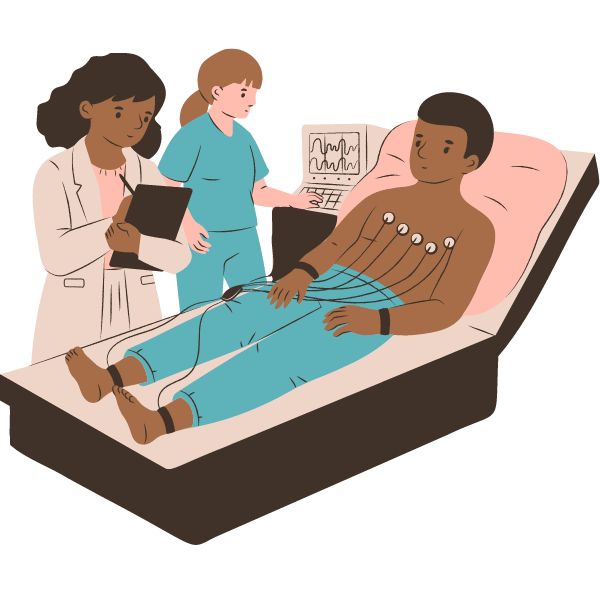
ECG
An electrocardiogram (ECG or EKG) is a test used to measure the electrical activity of the heart. This is done by placing electrodes on the skin to record the electrical signals produced by the heart with each beat.
How is the Test Performed?
-
Preparation:
- You may be asked to remove upper body clothing and wear a hospital gown.
- Certain areas of the skin are cleaned, and electrodes are placed on them.
-
Procedure:
- The electrodes are connected to an ECG machine.
- The process of recording the heart's electrical activity takes only a few minutes.
-
Duration: The test typically takes about 10 minutes.
Post-Test:
- Normal activities can usually be resumed immediately.
- The doctor reviews the results and provides recommendations if necessary.
What Does an ECG Reveal?
- Heart rhythm and arrhythmias (such as atrial fibrillation).
- Past or present heart attacks.
- Other issues such as heart enlargement or electrolyte imbalances.